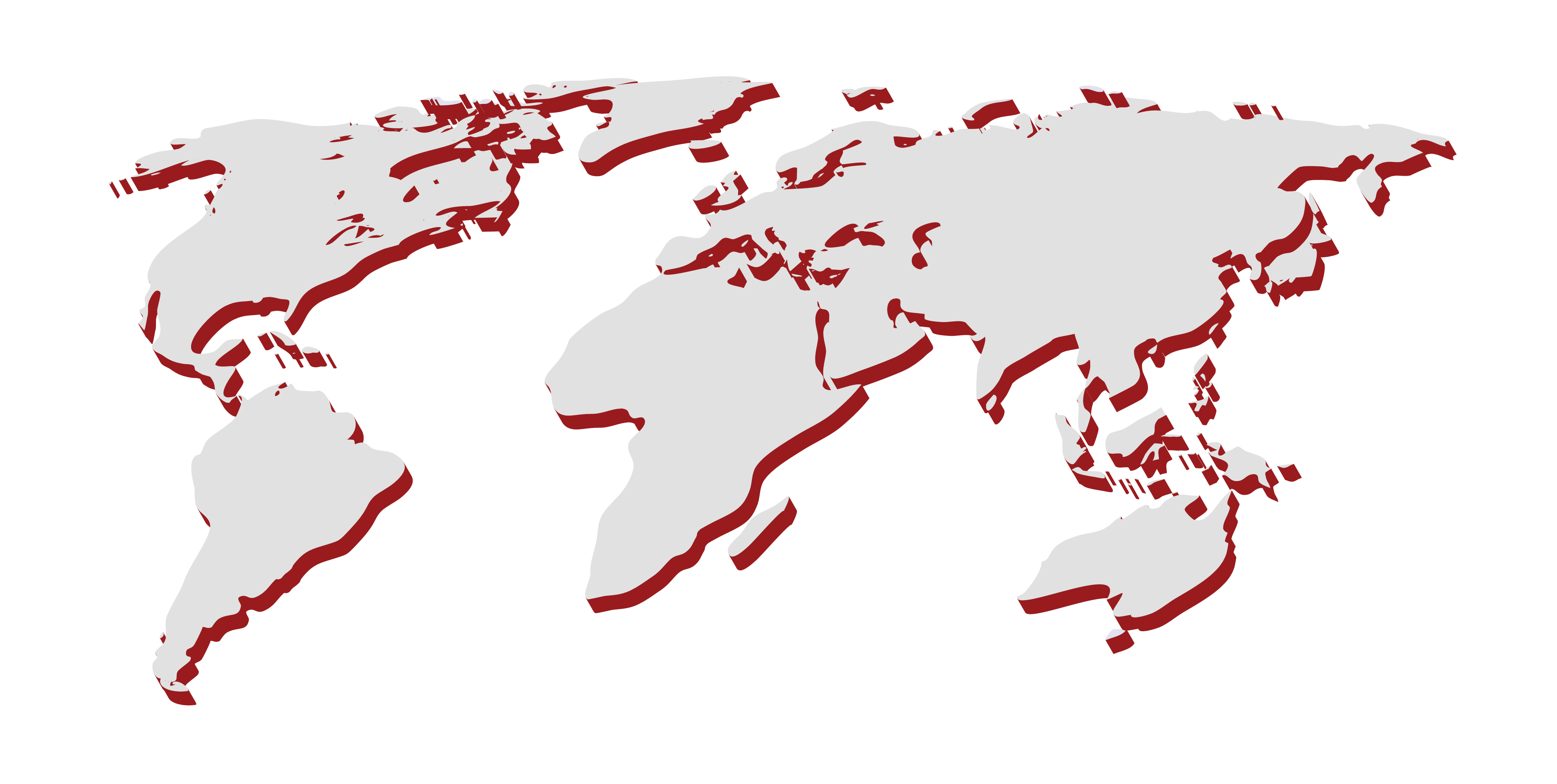ALUMNI AROUND THE GLOBE
Over its 20-year legacy of promoting professional and intellectual growth while advancing an international perspective on social sectors, the International Public Policy and Management (IPPAM) program at the USC Price School of Public Policy has served as a springboard for many global leaders.
North America IPPAM Alumni
North America IPPAM Alumni
South America IPPAM Alumni
East Asia IPPAM Alumni
South & Southeast Asia IPPAM Alumni
Middle East & Eurasia IPPAM Alumni
Central Asia IPPAM Alumni
Africa IPPAM Alumni
Click the pins on the map to see more
Most IPPAM students come to USC from other countries. But some, like Katherine Hennigan,
are U.S. natives who recognize the value of an international orientation in today’s
interconnected world.
When she entered the program, Hennigan was working on the business team of the Los
Angeles Mayor Antonio Villaraigosa, with part of her team’s focus to encourage international
trade and investment in Los Angeles.
“People often fail to realize how much international public policy affects local government,
especially in a global city like Los Angeles,” Hennigan said. “Much of the major real estate
development going on in this city is made possible by foreign investments. You simply cannot
fully understand the issues facing this city without having a solid grasp on international
economic policy.”
Earlier this year, after 12 years working for the City of Los Angeles, Hennigan formed her own
public affairs firm called ColLAborate. Hennigan and her business partner represent clients in a
wide range of industries, including real estate development, aviation, tech start-ups, and waste
Management.
As a native Angeleno, Kate is passionate about giving back to the city she was born and raised
in. She currently sits on the Board of the Alliance of Women Philanthropist, the Center for the
Study of Los Angeles (StudyLA) at Loyola Marymount University. Additionally, she now serves
on the Board of Directors for 211 LA County and the Los Angeles County Library Foundation.
While at USC, Hennigan served as president of the IPPAM student senate, and she helped
teach her international classmates about American culture, sharing her love for the country and
L.A. with them.
“The IPPAM degree changed my life,” Hennigan said. “The curriculum was perfectly tailored to
my career. Each class covered content that was directly relevant to actual issues I was dealing with in the public sector, and now in my career as a public affairs consultant. The most valuable lessons and skills I developed during my time in the IPPAM program were through my
leadership and negotiation classes. I use the principles taught to me by Dr. Joanna Yu, in my
everyday life.
Moreover, the program gave me a tremendous opportunity to expand my horizons, both by
getting to know my international classmates, and by giving me the chance to travel extensively
throughout China and Taiwan.”
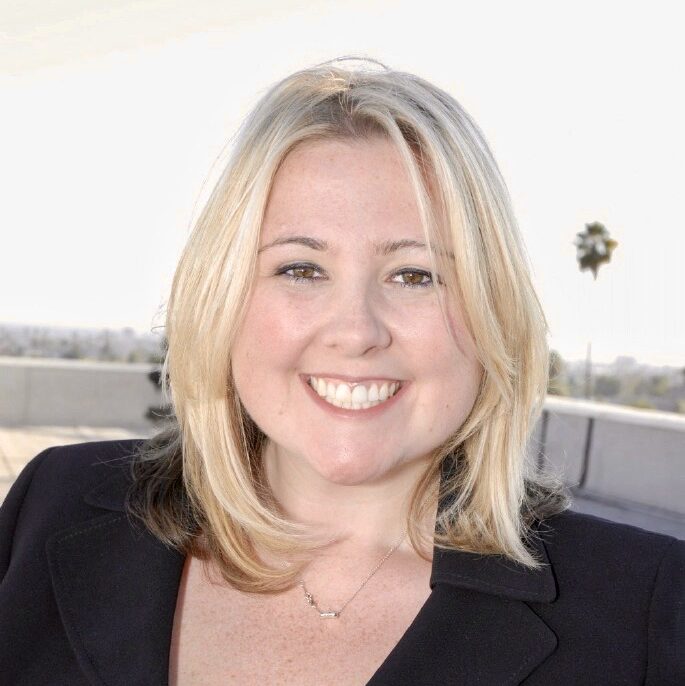
Katherine HenniganIPPAM 15
Violet Flocks, after attending Hendrix College as an undergraduate and earning her Bachelor of Arts degree in French, Violet pursued an internationally-focused advanced degree to further her education in foreign affairs. Naturally drawn to policy and the value of an international classroom, Violet accepted her position in the IPPAM 18 cohort in the summer of 2015.
During her time at USC, Violet thoroughly enjoyed learning from her classmates and tackling international policy with the guidance of her professors. Group projects were particularly enlightening as an American student surrounded by professionals from all over the world. Policy is not only local, but international – there is much to be learned from policy around the globe and best practices.
While finishing her degree at USC, Violet began interning at a Los Angeles public affairs firm – working on local and statewide political campaigns across the US in addition to regular policy monitoring and analysis for private and nonprofit clients in California. Currently, Violet is a public affairs representative for the Carpenters/Contractors Cooperation Committee, a labor-management organization founded by the Southwest Regional Council of Carpenters and signatory contractors. Her work encompasses public policy advocacy for construction workers in addition to working with land use policy and the real estate development community of Los Angeles County.
Violet maintains regular contact with her colleagues from IPPAM, making plans to meet up and share their life updates. Additionally, she has found value in USC alumni groups that contribute to her current work today.
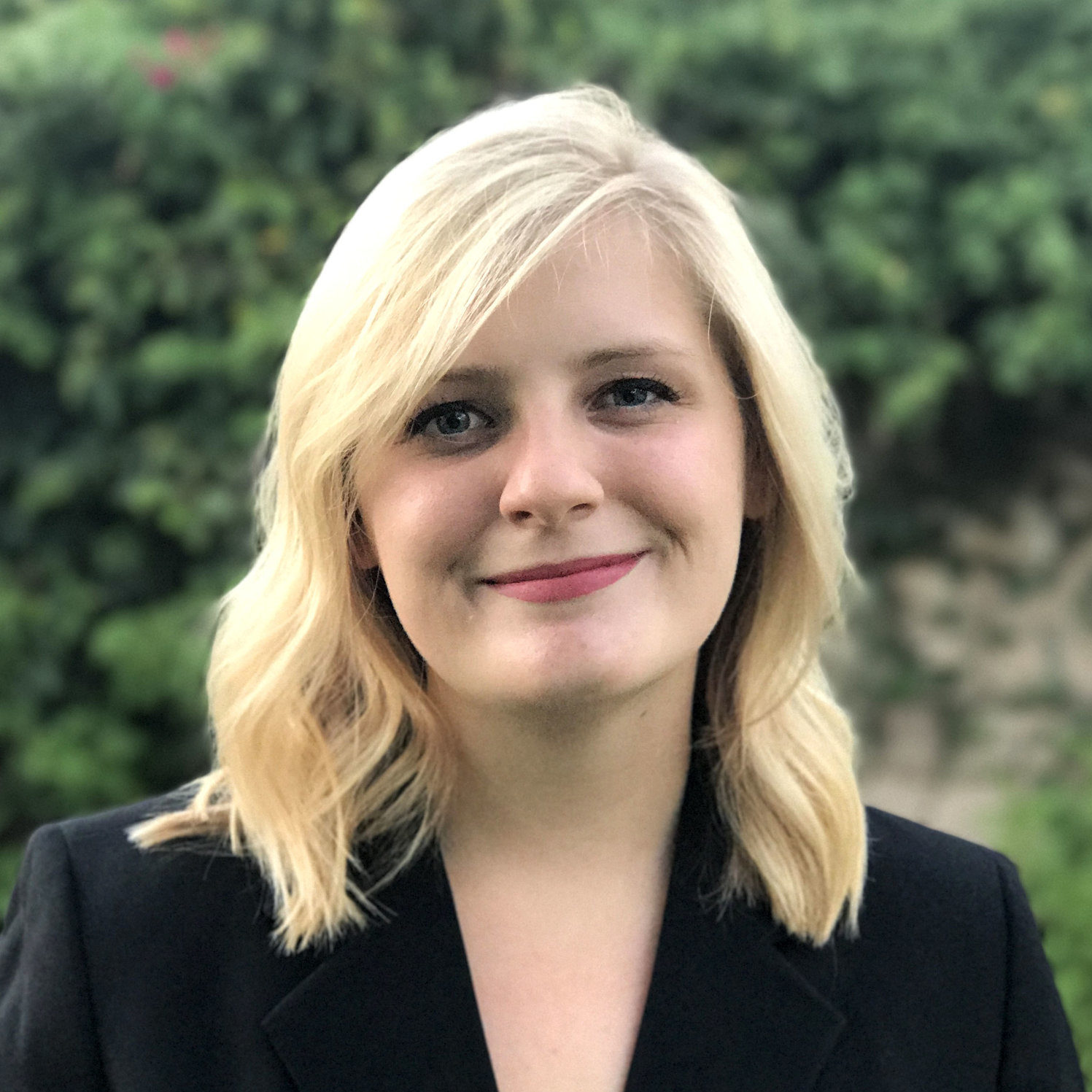
Violet FlocksIPPAM 18
Prior to IPPAM, Janice Atmadja acquired an M.S. Education and was an English Language professor for various universities across Southern California for 5 years. She taught at California State University Fullerton, Hope International University, Mount San Antonio College, and California Polytechnic University.
On her first day at IPPAM orientation, she could tell she was in for a unique experience. Sitting to her left and right was a diversity such as she has never seen before. Her cohort spanned young professionals with only one year of work experience under their belt all the way to seasoned government workers with over twenty years of experience. In addition, over ten countries were represented in her cohort. Janice entered IPPAM with the goal to shift careers from being an English Language Professor in the classroom to an international education policy specialist. One year later at the heat of the Trump Administration’s free trade negotiations, she graduated from this program with a focus in International Trade Governance, a path she never expected she would take, onto a career as a Trade & Program Analyst for the Los Angeles Area Chamber of Commerce.
Since then, she has assisted in hosting government delegations from various countries at the Chamber, led research on the state of international commerce in Los Angeles, and put on events with organizations like WTO, EXIM, or SpaceX to attract global business to Southern California. Their longstanding partnership with institutions critical to the infrastructure and trade in Los Angeles such as the Los Angeles World Airports and Port of Los Angeles make all that they do possible.
Janice’s one year in IPPAM reminded her how important it was to stay curious and to have fun. The world is your classroom. Be open to the opportunities, places and people whom your career and academic journey will take you through. When you stay open-minded and teachable, the world has much to show you. Don’t despise small beginnings. Don’t be afraid to work hard and to re-chart your course. Don’t be afraid to fail. Failing is not the opposite of success; it is part of success. With the world increasingly integrating, there is much need for innovation in policy and management. The future is bright. Fight on!
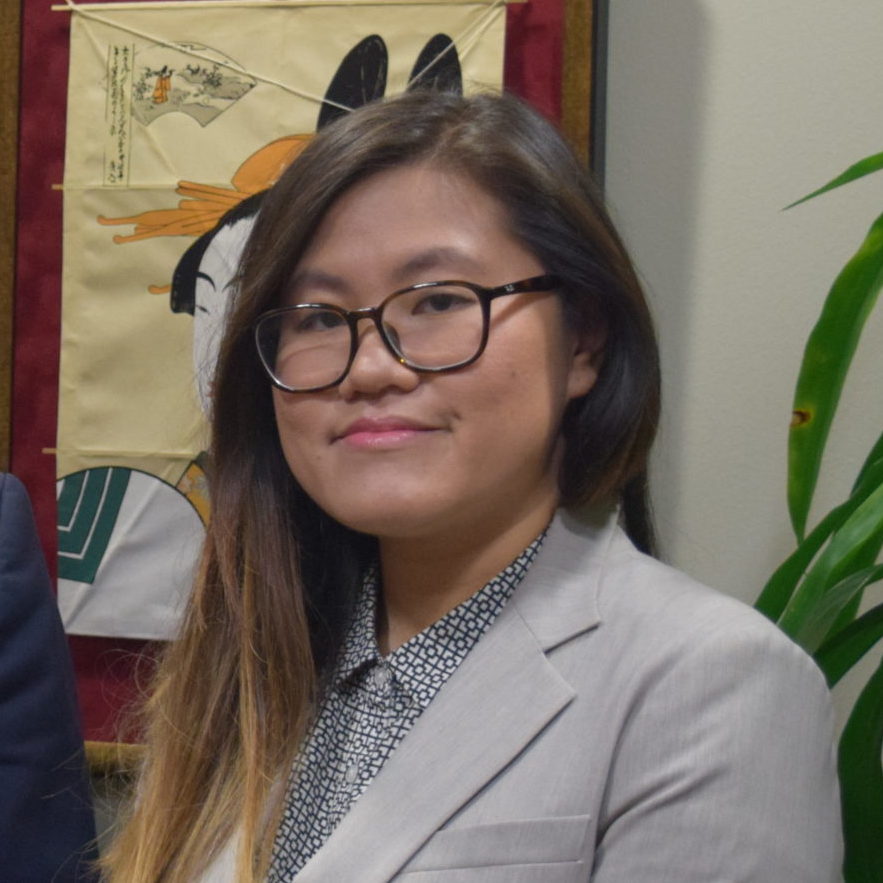
Janice N. AtmadjaIPPAM 20
Mohamad Edirissa Faal is a U.S. licensed attorney with 12 years’ experience in law firm practice and intergovernmental organizations (IGOs), including the World Bank and African Development Bank. Mohamad has expertise in a broad range of legal & policy areas arising within international corporate practice, particularly institutional administration & corporate governance, including: legal drafting (i.e. contracts, briefs, and opinions), institutional policy & rule interpretation, board affairs & proceedings, regulatory compliance, ethics, integrity & anti-corruption, employment litigation, risk management, internal investigations, quality assurance, strategy implementation & monitoring, and enhancement of portfolio management in public sector operations. Mohamad is Gambian-American, born and raised in Southern California. He holds a Bachelor of Arts (BA) in Political Science from University of Michigan – Ann Arbor, Juris Doctor (JD) from American University – Washington College of Law, and Master of International Public Policy & Management (MIPM) from University of Southern California with a specialization in Urban Planning and Infrastructure Management.
Since graduating from IPPAM, Mohamad has had the good fortune of contributing to global development in various ways. In his daily work as a lawyer at the African Development Bank (based in Abidjan, Côte d’Ivoire), he has helped facilitate the passage of multimillion-dollar development projects (i.e. energy, clean water, education, regional development, etc.) through the Board and worked to protect Bank funds from fraud and corruption. In his current role, he advises the Vice President of Regional Development, Integration, and Business Delivery on institutional legal and policy matters and also implements corporate strategy through training and capacity building. Outside of his daily work, he has contributed to the discourse amongst legal, policy, and international development professionals as a panelist at Georgetown University’s Georgetown Africa Business Conference (“Natural Resources & Infrastructure”), American University Washington College of Law’s Africa Legal Conference (“Legal Approaches to Business & Social Responsibility”), and Virginia Tech’s Global Leadership, Empowerment, and Diversity Summit (“Human Rights & Globalization”). He is also a regular contributor to the World Bank’s Doing Business Report and Women, Business, and the Law Report.
IPPAM has been hugely influential in Mohamad’s professional life. For one, he has improved and expanded his data gathering, presentation, and analytical skills. More importantly, his IPPAM education has broadened his thinking and perspective with respect to international public policy, management, and governance. He now has an enhanced understanding of complex global systems and their component parts. He is better able to visualize these entities and concepts – almost like a puzzle – to identify the gaps and interrelations. His IPPAM training has also given him better clarity on the spaces and roles he would like to occupy in the international development context.
IPPAM reinforced the values of teamwork, balance, family, and friendship in Mohamad’s life. He massively enjoyed his time in the program and looked back on it fondly. Indeed, IPPAM was academically rigorous, but it is the people, relationships, and good times that stand out the most in his mind. These times include his first USC campus visit in 2014; taking classes at USC’s Sacramento campus; meeting his classmates for the first time at the IPPAM orientation mixer; studying late into the night at the library with his classmates; completing the final policy analysis presentation in Professor Kaki’s class and celebrating with classmates afterward; attending the 2016 ASPA Conference in Seattle; and IPPAM 18 graduation lunch.
“IPPAM was a great time in my life that I will always cherish. I feel privileged to be a part of the IPPAM family.”
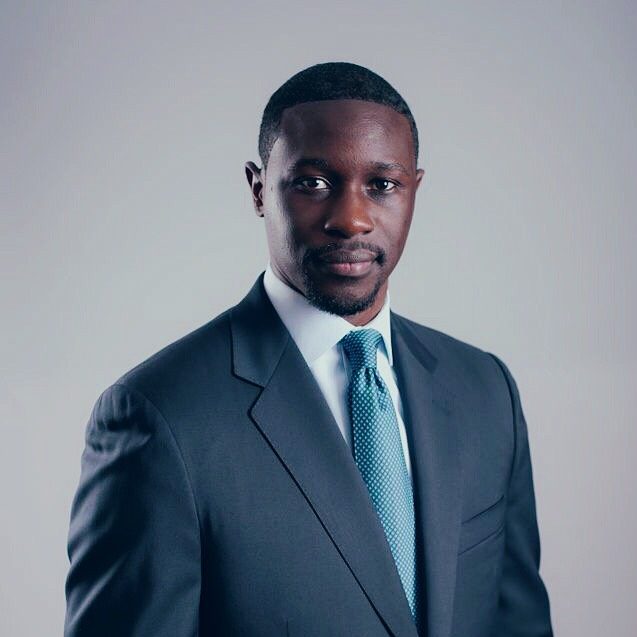
Mohamad Edirissa FaalIPPAM 18
Tiffany is presently employed by the Warner Brothers Entertainment as the DVD Operations Manager, responsible for managing the process of communicating with clients and monitoring the process of marketing, licensing, manufacturing, and the distribution of DVDs. Ms. Hu worked full time at Sony Pictures, while getting her degree at IPPAM. Because of her time at Sony, Tiffany was able to share much of her wisdom and her professional experiences with her classmates. Tiffany expressed that IPPAM not only prepared her well for her current career, but also taught her how to work in teams.
Tiffany’s most memorable experiences are the group projects. Assigned groups required her to work with different people with different cultural backgrounds who are competent in various ways. She learned that people possess strengths in different areas. Tiffany also learned to identify different people’s strengths, which she now uses to delegate responsibilities to her staff. Finally, Tiffany would like to encourage the new IPPAM students to “study hard and party hard with an open mind while at IPPAM. Always take the opportunity to work with different people from different backgrounds because IPPAM is an intensive and short program. Let yourself learn and enjoy the experience as much as you can!”
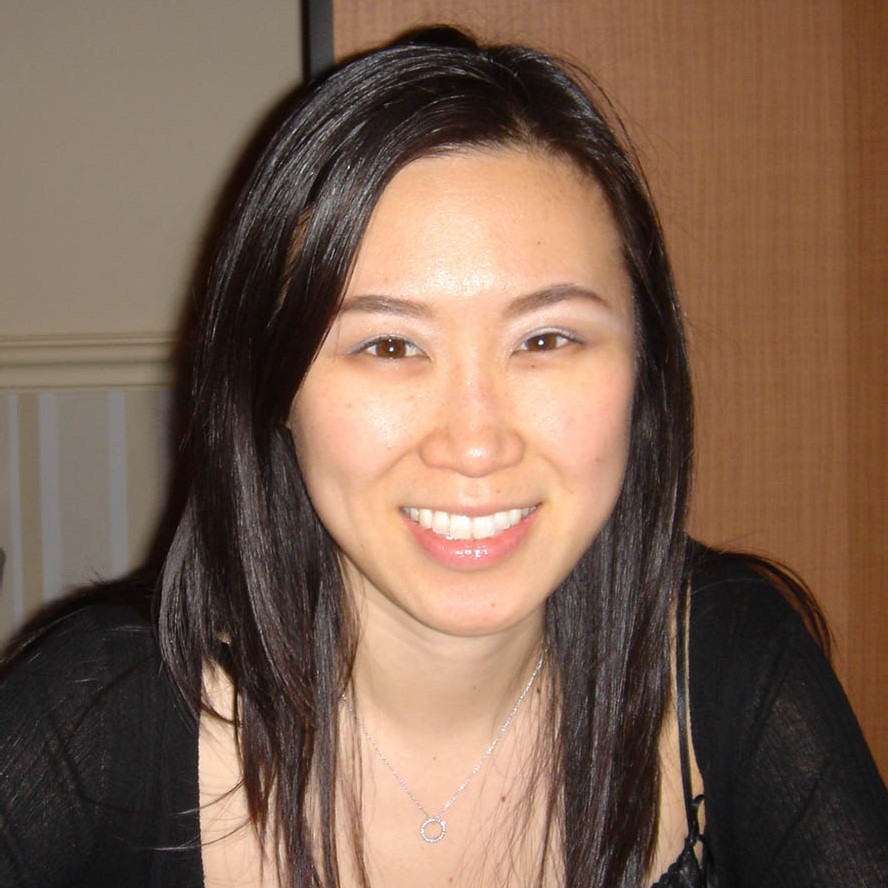
TIFFANY HU IPPAM 4
Amutra Levine is currently the Analysis and Control Element (ACE) Chief for a Military Intelligence Battalion. As the ACE chief, she focuses and prioritizes work, supervises interaction between sections, and task organizes the ACE resources to meet analytic demands. She accomplishes the commander’s mission by evaluating and tracking requirements, focusing the collection and analysis effort, and reviewing ACE products for quality and timeliness.
IPPAM impacted her by giving her the skills to understand the feelings people have when they are required to raise their game, when they experience change or when they need to be more effective, motivated and enthusiastic. A valuable lesson to be taken away from IPPAM was that life does not have to be one dimensional when dealing with individuals outside of your normal comfort zone. In short, IPPAM pushed her to think outside of the confines of “normal” interaction, to explore new possibilities, and to always think outside the box.

AMUTRA LEVINEIPPAM 10
Shortly after graduation Michelle began her job at Chemonics International, an international development firm based out of Washington D.C. focused on implementing USAID project around the world. As a manager focused on the Asia Region, she has worked on projects related to private sector development in Bangladesh, global financial services, democracy and governance in Indonesia, anti-trafficking, and most recently a marine and climate support project based in Indonesia. She has had a plethora of opportunities to conduct various short-term field assignments in Bangladesh, Vietnam, India, Indonesia, and Ethiopia. Michelle can directly attribute IPPAM’s career oriented classes and instructors to her professional growth. The curriculum promotes applicable concepts and functional skills that are easily transferable in the professional world.

MICHELLE LUMIPPAM 10
Joe Stewart, IPPAM 18. Joe was born in California. He obtained his bachelor’s in International Relations with minors in Spanish and Business Administration from the University of San Diego (UCSD). He also spent a year in Madrid to study Spanish Language and European Business & Politics while with UCSD. Upon completion, he moved to Washington DC for his internship with a U.S. Congressman, and then a second internship with a U.S. Senator. He was then offered a position at the U.S. Customs and Border Protection (CBP) headquarters in DC in 2010 where he worked as a Program Analyst for seven years. He relocated to Los Angeles in 2015 when accepted by IPPAM while still working remotely for CBP, in early mornings.
Soon after graduating from IPPAM, Joe took on a position in municipal government as a Management Analyst at the City of Carlsbad in the Economic Development Division (which is now the Innovation & Economic Development Department). His current role is Management Analyst, Innovation & Economic Development at the City of Carlsbad.
He covers a lot of ground, but right now it falls into three main categories—overseeing economic recovery and revitalization programs, managing economic development initiatives on behalf of the city, and taking on citywide program and project management opportunities as needed. Some examples of the work Joe does are managing the $1.2 million Department budget; administering over 30 consultant contracts valued up to $400,000; managing the creation of the city’s first Age-Friendly Action Plan; managing the city’s $5 million Economic Recovery and Revitalization fund and many more.
For Joe, one of the most valuable skills that has developed at IPPAM was developing cross-cultural communication skills to effectively work and enjoy experiences with classmates within the cohort. Classmates were all policy professionals from government agencies and non-profits from around the world. They were from countries like Japan, South Korea, China, Indonesia, Turkey, the UAE and Kazakhstan to name a few. Of course, navigating the university system, social norms, and Los Angeles itself can be a daunting endeavor for any student residing in a new country. As such, he took it upon himself to be a “American culture” communication resource on behalf of the academic program. When classmates had trouble understanding content or even wanting to learn about American football and other sports, he was there to help them make sense of it. If they needed help working with American classmates from other courses and bridged the gap. Even though he was also working a full-time job, he loved being able to help out fellow students any time the needed him. The result was a level of trust and a sense of community among his cohort. Joe’s time at IPPAM taught him how to effectively communicate to and on behalf of international classmates and helped him develop a high level of cross-cultural competency.
Another experience that stood out to Joe as part of his time in IPPAM was on International Project Management & Leadership. The first class of IPPAM was an International Public Policy and Management Seminar. The cohort was split into groups with each member being from a different country. Each group was assigned a policy theme and a country—his group was assigned homeland security/human rights and the United States. As the only American in the group, Joe took a leadership role and in coordination with the group, decided they would attempt to develop policy solutions in response to the unaccompanied undocumented children crisis at the southwest border. Even in his previous role at CBP, he did not have the opportunity to do a deep dive into the issue. This project allowed him the opportunity to develop subject matter expertise in the topic, along with acting as a mediator for his other groupmates, for which the issues that complicate this crisis are extremely unfamiliar. The result was a well-received project, and Joe’s first real experience in international project management skills, which also required him to develop strong cross-cultural communication abilities. No other program can offer this kind of experience like IPPAM does!
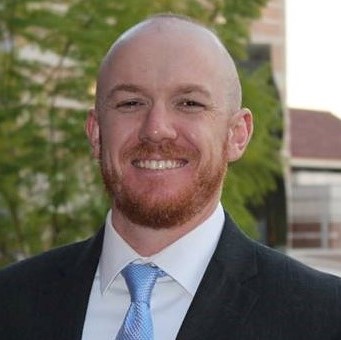
JOSEPH STEWARTIPPAM 18
Previous
Next
Go Back to Alumni Page

